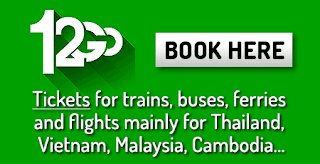.
Addressing
the World Economic Forum on Asean here, Mr. Duterte, this year’s chair
of the Association of Southeast Asian Nations (Asean), focused on how
the regional bloc could achieve inclusive growth and economic
integration.
As in most of his speeches, Mr. Duterte called
attention to the “scourge of illegal drugs that threatens our youth and
the future of our societies.”
Then he called for commitment to make Southeast Asia a drug-free region.
“We
need to take a committed stand to dismantle and destroy the illegal
drug trade apparatus,” he said, emphasizing the need to keep the youth
away from drugs. “We must reaffirm our commitment to realize a drug-free
Asean community.”
Earlier on Thursday, however, Mr. Duterte’s
Cabinet officials found themselves answering questions from journalists
about the killings of thousands of people in his war on drugs and
whether the crackdown had scared away foreign investments.
The
forum came four days after 45 of the 47 member states of the United
Nations Human Rights Council (UNHRC) demanded an end to extrajudicial
killings in Mr. Duterte’s war on drugs during a review of the
Philippines’ human rights record in Geneva.
Many of the council members sought an international investigation of the killings.
The
Cabinet officials who attended the briefing on Dutertenomics—or the
administration’s Build, Build, Build program— were Transportation
Secretary Arthur Tugade, Public Works Secretary Mark Villar,
Presidential Communications Secretary Martin Andanar, Trade Secretary
Ramon Lopez, Energy Secretary Alfonso Cusi, Socioeconomic Planning
Secretary Ernesto Pernia, incoming Foreign Secretary Alan Peter
Cayetano, presidential spokesperson Ernesto Abella and Bases Conversion
and Development Authority president Vince Dizon.
War on drugs
After
their brief presentation on how the Duterte administration planned to
achieve a high middle-income status for the Philippines in the next six
years, a German journalist asked them how the war on drugs “might lead
to lesser foreign direct investments.”
Frederic Spohr, a
Thailand-based correspondent for the German newspaper Handelsblatt, said
German businessmen were worried about the war on drugs and the rule of
law in the Philippines.
Spohr later told the Inquirer that he had
written a report about how chambers of commerce in Germany cautioned
businessmen about investing in the Philippines because of the perception
of instability.
Repeating his remarks in the UNHRC review in
Geneva on Monday, Cayetano gave assurance that “the protection of human
rights is paramount” for the Philippine government and that “the
campaign against drugs is a campaign to protect the human rights” of the
Filipinos.
He accused the international media of not showing the full picture in their reports on Mr. Duterte’s war on drugs.
“They
only show the rhetoric of the President when he is mad at certain
criticisms against the Philippines,” Cayetano said. “They don’t show the
statements where he says, ‘Police cannot abuse and that they are worse
than criminality.’”
He said only close to 3,000 people had been
killed in drug-related police operations and that the higher numbers
reported by the media referred to “homicides.”
“For those of you who are hearing that there are 7,000 deaths in the Philippines, that’s not true,” he said.
Come to the Philippines
Cayetano invited the foreign journalists to visit the Philippines to see things for themselves.
Lopez claimed that the crackdown on narcotics had resulted in a sense of safety in Philippine communities.
He also claimed that business and consumer confidence had gone up.
Moderator
Adrian Monck asked the Philippine officials about how Mr. Duterte had
been “incredibly outspoken” and how such “rhetoric” had drawn support
from some investors but also resulted in the “alienation” of others.
Cusi
responded, but did not answer the question directly, instead saying
that the Philippines was “a nation in a hurry to improve the lives of
Filipinos.”
Lopez said the Duterte administration was not focusing on drugs.
“That’s why we are having Dutertenomics,” he said. “Peace and order has to be the basic foundation.”
Pernia
said Dutertenomics was about “building fast, on schedule and getting
things done quickly because the President is impatient and so are the
ministers.”
$160-B investment needed
The Philippine
officials said an investment of $160 billion would enable the
Philippines to achieve a high middle income status by the end of Mr.
Duterte’s term.
They said the Philippines could eliminate poverty and become one of the 30 largest economies in the world “within a generation.”
The World Bank considers the Philippines a lower middle income country.
“We expect clarity on the part of the international community to banish misconceptions,” Pernia told the Inquirer later.
Asked how the briefing for investors went, he said, “Nothing is perfect and no briefing or examination is perfect.”
Source - TheNation















